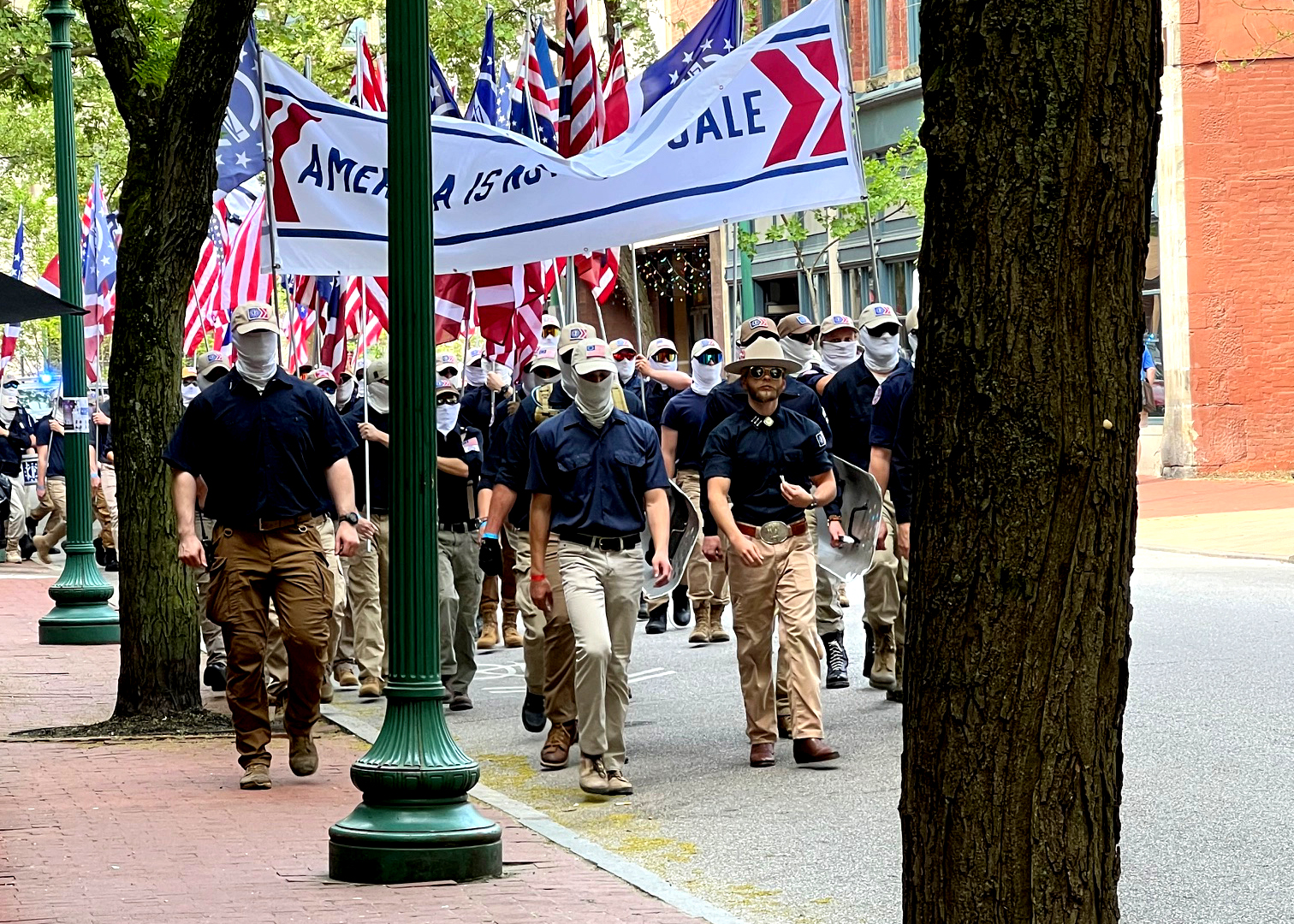On the same day the YWCA Charleston had a Race to End Racism in the capitol city, a group of men from the white supremacist group Patriot Front marched through the streets of downtown.
Witnesses reported the seeing the men unload two U-Haul trucks at Daniel Boone Park and marching to the Capitol in front of the statue of Confederate General Stonewall Jackson, on Kanawha Boulevard and California Street. They then marched down the boulevard and turned onto Capitol Street.
The group marched carrying a banner that read “America is not for sale.” They chanted slogans and handed out the organization’s propaganda.
According to the Anti Defamation League, the “Patriot Front is a white supremacist group whose members maintain that their ancestors conquered America and bequeathed it to them alone. They define themselves as American fascists or American nationalists who are focused on preserving America’s identity as a European-American nation.”
They often use flash demonstrations like toady’s event around the country.
The men were all wearing matching khaki pants, hats and dark colored polo shirts. They were also wearing masks over their faces from the moment they jumped out of the back of the trucks.
Mayor Amy Goodwin put out a statement that said, in part, “It is important for our community to celebrate coming together and stand up against hate. When our city team learned of a national hate group demonstrating earlier today, we acted quickly and appropriately to make sure all in our community remained safe.”
The Charleston City Police stayed close by to avoid any trouble and the march appeared to be peaceful. It is unclear if the group had a permit for the march.
